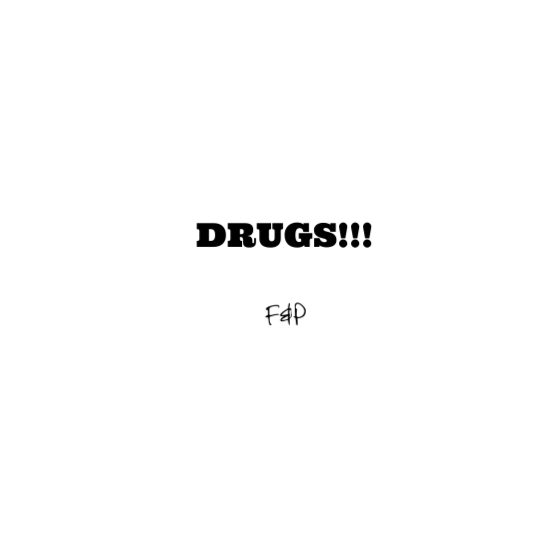Back to Back Records: Elizium by Fields of Nephilim
Though being morbidly attracted to nearly anything bizarre and even creepy, I cannot call myself a goth by any stretch of the imagination. Nor can I say that I'm a big fan of "gothic" culture. It was for this very reason that I missed out on quite a bit of good music for a long time, and the two excellent bands which are Sisters of Mercy and the truely amazing Fields of the Nephilim. It took two of my favourite bands, Behemoth and Watain, to convince me to check out their work, namely their 1990 album, Elizium.
Enjoying the same production team and a similar to sound to Pink Floyd's Momentary Lapse of Reason (an unusual, but wonderful Floyd album in its own right), Fields of the Nephilim's third album brings their atmospheric approach to rock to new heights, and I dare say to the heavens themselves. To call this "goth rock" would be a real misnomer; though there are echoey vocals and murky atmosphere's everywhere, there's more than enough light to go around. It's the equivalent of a foggy day where the sun is always just on the verge of breaking through. It really makes me yearn for the day when I can get a good turntable, nice speakers, and a free night all to myself (and possibly likeminded individuals) to properly savour this masterpiece.
If I were to compare it to my fall albums, this one is a spring album: I feel the dampness in the ground, breathe the richness of black soil, and the promise in unfurling dark green vegetation. Though its mysterious and etheric, it's also uplifiting and positive. Maybe it's because I picked it up at a little shitty CD shop in spring, when Saint Petersburg was coming out of its long, arduous hibernation (ie: days when we have more than 6 hours of actual daylight, and maybe see the sun twice a week), but really, this album just kicks ass start to finish.
The album starts off with a rumbling instrumental called "Dead But Dreaming," which is little more than a soundscape akin to something Tangerine Dream may have conceived circa 1974. Then we are instantly thrust into the swinging "To Her Light," which promintently displays all of Fields of the Nephilim's best talents: effect laden, etheric guitars, strong bass, creative drumming, and Carl McCoy's vocals that range from snarls to crooning. It barely reaches over three minutes, and leaves you wanting more before the subdued "At the Gates of Silent Memory" comes on. This is a long, slow song with a smattering of drum fills to highlight Carl McCoy's poetry. It could pass as some sort of Shamanic rite, in the way that it ebbs and flows, and the sample of Aleister Crowley at the beginning speaks to you out of the past like a ghost expounding wisdom.
"Paradise Regained" kicks it into high gear, breaking the crawl of "At the Gates of Silent Memory" like a sprinter awaking from sleep. This doesn't even reach three minutes, trailing off after reaching an explosive conclusion where Paul Wright and Peter Yates' guitar playing works in tandem before splitting off in different directions. Finishing up side A (if you're lucky enough to be listening on vinyl) is "Submission," another long song, which jazzy drumming courtesy Alexander Wright and squelching solos. The song also has its up and downs, more explosively than "At the Gates of Silent Memory," but I personally find that it overstays its welcome. Not that it's bad, but just not as interesting as the other material.
Flipping over to the next side, you get "Sumerland (What Dreams May Come)," which is dreamy, as the title suggests. It is also the best composed song on here. Nearly none of the songs on Elizium have recognizable choruses, and the structures are constantly morphing through excellent guitar dichotomy and key changes. This song also builds to the highest crescendo on the album, finally exploding into a bombastic conclusion. This also has to be the highlight of Tony Pettitt's slithery bass work, as he runs all over the fretboard like fellow Brits Steve Harris, John Entwhistle, and Geezer Butler.
From there on out, we have two dreamy tracks, "Wail of Sumer" and "And There Will Your Heart Be Also," which finish off the album like a post coital smoke. Both of these are the dreamiest, most relaxing songs on the album, and actually do bear a strong resemblence to Pink Floyd. Just listen to that David Gilmore inspired lead break at the end of "And There Will Your Heart Be Also," as Elizium slips into the mist.
Until you choose to flip it over and listen again.
The production really deserves special mention. Each instrument is sufficiently separated, giving it room to breath and expand. If this were a rock or metal album, it would cause it to feel empty, or even weak. With the atmospheric music, however, it is perfectly suited and highlights the talented individuals who have crafted this slice of heaven.
Why is this album best enjoyed back to back? I could easily cite the segues that link each song, but it's also the fact that the most rocking material on side A is so short that to listen to them alone feels criminally insufficient. Each song also has its little climaxes and rests, but side A's contrasts appear in different songs, which explains why Fields of the Nephilim usually play those four songs together in one in concert.
I usually listen to the album when I have the time to enjoy it all, and no one can disturb me. Planning lessons with my headphones on. Taking a long bath in a darkened bathroom in close approximation of a sensorty deprivation chamber. Or writing, as I am doing now







